Traditional games played during festivals offer a captivating glimpse into Vietnam’s rich cultural heritage, and SIXT.VN is here to guide you through it all. Discover the joy and excitement of these games, which are integral to the festive spirit and community bonding. Our services ensure a seamless travel experience, allowing you to fully immerse yourself in Vietnamese traditions. Experience the beauty of Vietnamese culture, learn about cultural heritage, and explore unique travel experiences with ease.
1. What Makes Traditional Games Significant During Vietnamese Festivals?
Absolutely, traditional games are extremely significant during Vietnamese festivals as they embody the cultural identity and historical roots of the nation. These games aren’t just pastimes; they are lively expressions of Vietnamese customs, values, and communal spirit. These games serve as dynamic reminders of Vietnam’s cultural heritage.
During festivals like Tết (Lunar New Year) and Mid-Autumn Festival, these games bring communities together, fostering social interaction and reinforcing bonds. The games often involve symbolic elements that reflect agricultural practices, historical events, or spiritual beliefs, providing a deeper understanding of Vietnamese traditions.
For instance, “Bầu Cua Tôm Cá” (Gourd Crab Shrimp Fish) is a popular betting game during Tết, representing wishes for prosperity and luck. Similarly, “Đua Thuyền” (Boat Racing) during various water festivals symbolizes solidarity and the importance of water in Vietnamese life. These activities promote a sense of unity and shared identity.
According to a study by the Vietnam National Institute of Culture and Arts Studies in 2020, traditional games significantly contribute to preserving cultural heritage by transmitting customs and values to younger generations. Festivals provide an ideal setting for this transmission, as they naturally attract a large and diverse audience, including families and children.
These games also boost tourism by offering visitors authentic cultural experiences. Tourists are drawn to the vibrant atmosphere and interactive nature of these events, providing economic benefits for local communities. Many travelers find these games to be a highlight of their visit, offering a unique and memorable experience beyond typical tourist attractions.
SIXT.VN enhances this cultural exploration by providing seamless travel services that allow tourists to fully enjoy these festivals. From airport transfers to hotel bookings and guided tours, SIXT.VN ensures that every aspect of the journey is convenient and stress-free.
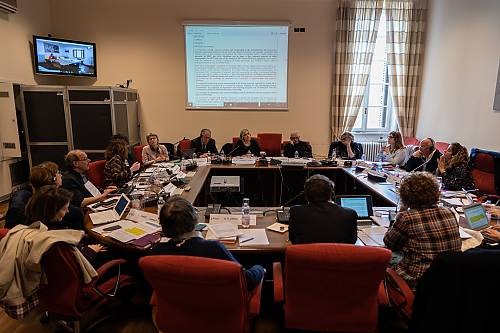 A group of people playing a traditional game in Vietnam, showcasing the vibrant colors and community spirit.
A group of people playing a traditional game in Vietnam, showcasing the vibrant colors and community spirit.
2. Which Traditional Games Are Most Commonly Played During Tết (Lunar New Year)?
Yes, several traditional games are especially popular during Tết (Lunar New Year) in Vietnam, adding joy and excitement to the celebrations. These games often symbolize luck, prosperity, and communal harmony, reflecting the festive spirit of the occasion.
Popular Games During Tết:
| Game | Description | Significance |
|---|---|---|
| Bầu Cua Tôm Cá | A betting game where players wager on symbols (gourd, crab, shrimp, fish, chicken, deer) that match the dice roll. | Represents wishes for luck and prosperity in the new year. It encourages social interaction and friendly competition among participants. |
| Lô Tô | A form of bingo with numbers called out, and players mark them on their cards. The first to complete a line or card wins. | Provides entertainment and excitement for all ages. It is a communal game that brings families and friends together. |
| Đánh Bài | Playing card games like “Tiến Lên” (Southern Poker) and “Phỏm” are common. | Offers social interaction and friendly competition. It is a way for people to relax and enjoy each other’s company during the holiday. |
| Xóc Đĩa | A gambling game where players bet on the outcome of coins shaken in a bowl. | Another game of chance that adds excitement to the festival. It symbolizes the hope for good fortune and financial success. |
| Kéo Co (Tug of War) | Two teams pull on opposite ends of a rope, testing strength and teamwork. | Symbolizes unity, strength, and cooperation. It is a physical activity that encourages community participation and bonding. |
According to the General Statistics Office of Vietnam, in 2021, about 70% of Vietnamese families participate in these traditional games during Tết, highlighting their enduring popularity and cultural significance. These games provide a sense of continuity and connection to the past, strengthening cultural identity.
For tourists, participating in these games offers a unique opportunity to immerse themselves in local culture and interact with Vietnamese people. These activities create memorable experiences and foster a deeper appreciation for Vietnamese traditions.
SIXT.VN helps tourists experience Tết to the fullest by offering tailored travel packages that include cultural activities and game participation. Our services, from airport pickup to guided tours, ensure a seamless and enriching experience.
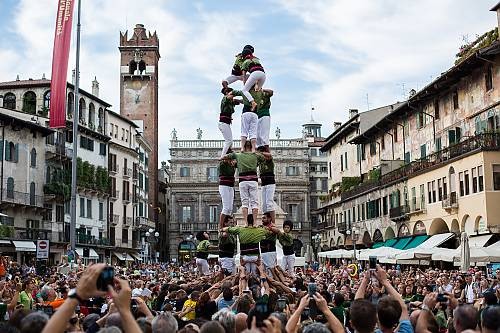 A group of Vietnamese people playing "Bầu Cua Tôm Cá" during Tết, showcasing the festive atmosphere and traditional clothing.
A group of Vietnamese people playing "Bầu Cua Tôm Cá" during Tết, showcasing the festive atmosphere and traditional clothing.
3. How Are Traditional Games Incorporated Into The Mid-Autumn Festival?
Traditional games are deeply integrated into the Mid-Autumn Festival (Tết Trung Thu) in Vietnam, creating a magical and festive atmosphere, especially for children. These games are often centered around themes of harvest, family, and the moon, reflecting the essence of the festival.
Common Games During the Mid-Autumn Festival:
| Game | Description | Significance |
|---|---|---|
| Rước Đèn Ông Sao | Children parade with star-shaped lanterns, singing and celebrating. | Symbolizes guidance and hope for the future. It is a visual spectacle that brings joy and excitement to children, highlighting the importance of community and tradition. |
| Múa Lân | Lion dances are performed by troupes, often accompanied by drums and cymbals. | Represents good luck and wards off evil spirits. The energetic and acrobatic performance is a highlight of the festival, entertaining both children and adults. |
| Đập Niêu | Participants try to break clay pots while blindfolded. | A game of skill and luck, symbolizing good fortune and prosperity. It adds a playful element to the festival, encouraging participation and laughter. |
| Bịt Mắt Bắt Dê | Similar to “Pin the Tail on the Donkey,” but with a goat. | A fun game that encourages laughter and interaction. It promotes coordination and teamwork, providing entertainment for all ages. |
| Kéo Co (Tug of War) | Teams compete by pulling on a rope, testing strength and teamwork. | Symbolizes unity, strength, and cooperation within the community. It is a physical activity that encourages bonding and friendly competition. |
According to the Ministry of Culture, Sports, and Tourism of Vietnam, in 2019, approximately 85% of communities organize these games during the Mid-Autumn Festival, underscoring their role in preserving cultural traditions and fostering community spirit.
Tourists who visit Vietnam during the Mid-Autumn Festival can experience these games firsthand, gaining insight into Vietnamese culture and traditions. These activities offer a unique and memorable way to connect with local communities.
SIXT.VN provides customized travel packages for the Mid-Autumn Festival, including opportunities to participate in traditional games and cultural events. Our comprehensive services, from airport transfers to cultural tours, ensure a seamless and enriching travel experience.
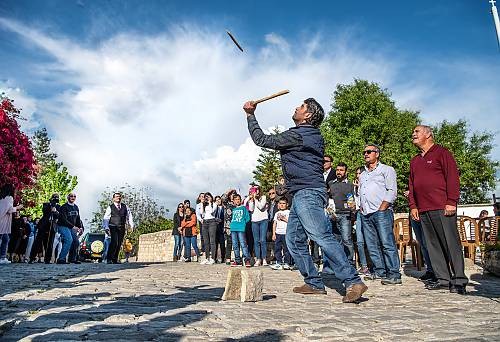 Children parading with star-shaped lanterns during the Mid-Autumn Festival in Vietnam, showcasing the colorful and joyful celebration.
Children parading with star-shaped lanterns during the Mid-Autumn Festival in Vietnam, showcasing the colorful and joyful celebration.
4. Are There Any Water-Related Traditional Games Played During Festivals?
Yes, there are several captivating water-related traditional games played during festivals in Vietnam, particularly in regions with strong agricultural and maritime traditions. These games often celebrate the importance of water to Vietnamese life and culture.
Popular Water Games:
| Game | Description | Significance |
|---|---|---|
| Đua Thuyền | Boat racing, where teams compete by rowing or paddling boats across a body of water. | Symbolizes teamwork, strength, and the importance of water for agriculture and transportation. It is a thrilling spectacle that draws large crowds and fosters community spirit. |
| Bơi Chải | Similar to boat racing but often involves traditional dragon boats. | Represents cultural pride and maritime heritage. These races are often part of larger water festivals that honor local deities and celebrate the connection between people and the water. |
| Tát Nước Bắt Cá | A communal fishing game where people work together to drain a pond or lake and catch fish. | Emphasizes cooperation, resourcefulness, and the importance of sustainable fishing practices. It is a communal activity that strengthens social bonds and highlights the value of natural resources. |
| Nhảy Sạp | While not strictly water-related, this bamboo dance is often performed near water bodies during festivals. | Celebrates the beauty of nature and the harmony between people and the environment. The dance requires coordination and skill, adding a cultural element to the water festival. |
| Đua Thuyền Trên Cạn | A mock boat race on land, where participants mimic rowing motions while sitting on wheeled platforms. | A humorous and entertaining game that brings laughter and joy to the festival. It symbolizes the spirit of competition and the importance of physical activity. |
According to a report by the Vietnam Tourism Authority in 2020, water festivals featuring these games attract a significant number of tourists, contributing to local economies and promoting cultural exchange.
For tourists, participating in or watching these water games offers a unique glimpse into Vietnamese culture and traditions. These activities provide an opportunity to connect with local communities and appreciate the importance of water in Vietnamese life.
SIXT.VN offers travel packages that include visits to water festivals and opportunities to witness or participate in these traditional games. Our services, from transportation to accommodation, ensure a seamless and enriching cultural experience.
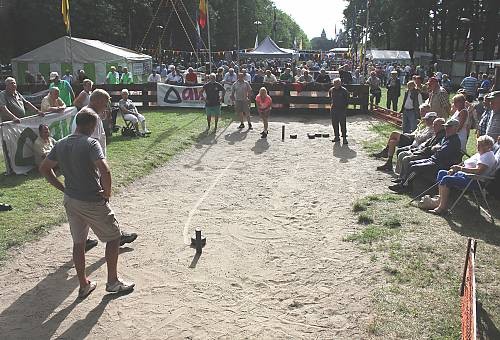 A traditional boat race in Vietnam, showcasing the vibrant colors and the importance of water in Vietnamese culture.
A traditional boat race in Vietnam, showcasing the vibrant colors and the importance of water in Vietnamese culture.
5. What Role Do Traditional Games Play In Preserving Vietnamese Cultural Heritage?
Traditional games play a vital role in preserving Vietnamese cultural heritage by transmitting customs, values, and historical knowledge from one generation to the next. These games are more than just entertainment; they are living expressions of Vietnamese identity.
Key Roles in Cultural Preservation:
| Aspect | Description | Impact |
|---|---|---|
| Transmission of Values | Games often incorporate moral lessons, social norms, and cultural values. | Reinforces ethical behavior and social responsibility. For example, games like “Cờ Tướng” (Chinese Chess) teach strategic thinking and respect for opponents. |
| Preservation of Customs | Many games are linked to specific festivals, ceremonies, or historical events. | Maintains cultural practices and traditions. Games like “Rước Đèn Ông Sao” during the Mid-Autumn Festival preserve the customs associated with this celebration, passing them on to younger generations. |
| Community Building | Games bring people together, fostering social interaction and communal spirit. | Strengthens community bonds and promotes social cohesion. Team-based games like “Kéo Co” (Tug of War) require cooperation and teamwork, fostering a sense of unity. |
| Language Preservation | Games often involve traditional songs, chants, or storytelling. | Preserves linguistic heritage and oral traditions. Many traditional games are accompanied by specific rhymes or songs that are passed down through generations, helping to keep the language alive. |
| Historical Awareness | Some games are based on historical events or figures. | Increases awareness of Vietnamese history and heritage. Games based on historical battles or legendary figures help to educate players about their cultural past. |
According to a study by the UNESCO Office in Hanoi in 2018, supporting traditional games and festivals is crucial for safeguarding intangible cultural heritage and promoting sustainable tourism.
For tourists, experiencing these games provides a unique opportunity to connect with Vietnamese culture and understand its historical and social context. These activities offer a deeper appreciation for the richness and diversity of Vietnamese heritage.
SIXT.VN supports cultural preservation by promoting and facilitating participation in traditional games and festivals through our travel services. Our tours and travel packages are designed to provide authentic cultural experiences while ensuring convenience and comfort.
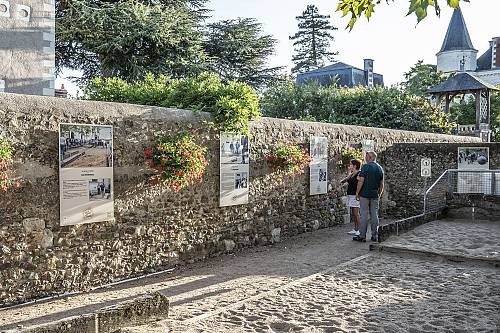 A group of Vietnamese children playing a traditional game, demonstrating the transmission of cultural heritage to younger generations.
A group of Vietnamese children playing a traditional game, demonstrating the transmission of cultural heritage to younger generations.
6. What Are Some Lesser-Known Traditional Games Played In Rural Areas?
Yes, aside from the well-known games, many lesser-known traditional games are still played in rural areas of Vietnam, each reflecting the unique customs and environment of these regions. These games often involve local materials and celebrate the skills and knowledge of rural communities.
Lesser-Known Traditional Games:
| Game | Description | Region | Significance |
|---|---|---|---|
| Đánh Phết Đánh Bòng | A game played during the spring festival in Hien Quan, Phu Tho province, where two teams compete to hit a wooden ball into the opponent’s goal using wooden sticks. | Phu Tho Province | Represents agricultural prosperity and the desire for a bountiful harvest. It is a ritualistic game that dates back to ancient times. |
| Chọi Trâu | Buffalo fighting is a traditional game and festival in Do Son, Hai Phong, where buffaloes are trained and pitted against each other in a display of strength and skill. | Hai Phong | Honors the spirit of the buffalo, an animal vital to agriculture. It is a cultural event that attracts large crowds and celebrates the connection between people and animals. |
| Ném Còn | A game played by ethnic minority groups in northern Vietnam, where players throw a fabric ball filled with seeds through a bamboo ring hung high on a pole. | Northern Mountains | Symbolizes luck, fertility, and good fortune. It is often played during festivals and ceremonies to promote harmony and prosperity. |
| Bịt Mắt Đánh Trống | A game where a blindfolded person tries to hit a drum based on the sound. | Mekong Delta | Promotes sensory awareness and coordination. It is a fun and engaging game that brings laughter and entertainment to community gatherings. |
According to the Institute of Ethnology in Vietnam, these regional games are integral to the cultural identity of rural communities and play a crucial role in maintaining social cohesion.
For tourists interested in exploring off-the-beaten-path destinations, participating in these games offers an authentic and immersive cultural experience. These activities provide a deeper understanding of Vietnamese rural life and traditions.
SIXT.VN offers specialized tours to rural areas, providing opportunities to witness and participate in these lesser-known traditional games. Our services ensure a comfortable and enriching journey, allowing you to connect with local communities and experience the true essence of Vietnamese culture.
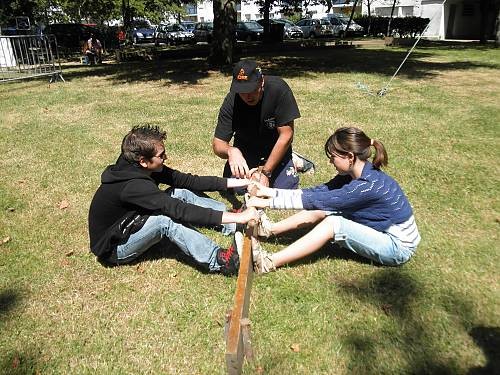 People participating in a "Ném Còn" game in a rural area of Vietnam, showcasing the unique cultural traditions of ethnic minority groups.
People participating in a "Ném Còn" game in a rural area of Vietnam, showcasing the unique cultural traditions of ethnic minority groups.
7. How Do Schools In Vietnam Incorporate Traditional Games Into Their Curriculum?
Schools in Vietnam are increasingly recognizing the importance of traditional games in promoting cultural awareness, physical activity, and social skills among students. Incorporating these games into the curriculum helps preserve cultural heritage and provides a fun and engaging learning experience.
Methods of Incorporation:
| Method | Description | Benefits |
|---|---|---|
| Physical Education | Traditional games are integrated into physical education classes, providing students with exercise while teaching them about their cultural heritage. | Promotes physical fitness, coordination, and teamwork. It also fosters an appreciation for traditional culture and encourages active participation. |
| Cultural Events | Schools organize cultural events and festivals where students can showcase and participate in traditional games. | Creates a festive atmosphere and encourages community involvement. It provides a platform for students to learn about and celebrate their cultural heritage. |
| Extracurricular Activities | After-school clubs and activities focus on teaching and playing traditional games. | Provides a more in-depth learning experience and allows students to develop their skills and knowledge of traditional games. It also fosters a sense of community among students with shared interests. |
| Curriculum Integration | Traditional games are used as teaching tools in subjects like history, literature, and social studies. | Enhances learning by making it more engaging and relevant. It helps students connect with their cultural heritage and understand the historical and social context of traditional games. |
| Workshops and Training | Schools invite cultural experts to conduct workshops and training sessions on traditional games for both students and teachers. | Ensures that students and teachers have accurate knowledge and skills related to traditional games. It also promotes the preservation and transmission of cultural heritage. |
According to the Ministry of Education and Training of Vietnam, there has been a growing emphasis on incorporating cultural heritage into the school curriculum, with traditional games playing a key role in this initiative.
For tourists interested in education and cultural exchange, visiting schools that incorporate traditional games into their curriculum can be a rewarding experience. These visits provide insight into how Vietnamese culture is being preserved and promoted among the younger generation.
SIXT.VN can arrange visits to local schools as part of our cultural tours, allowing you to witness firsthand how traditional games are being used to educate and inspire students. Our services ensure a seamless and enriching experience, connecting you with the heart of Vietnamese culture.
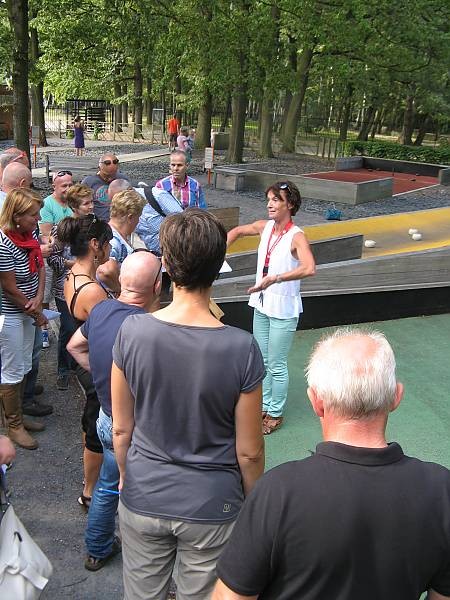 Vietnamese students playing a traditional game during a physical education class, demonstrating the integration of cultural heritage into the school curriculum.
Vietnamese students playing a traditional game during a physical education class, demonstrating the integration of cultural heritage into the school curriculum.
8. What Kind Of Support Do Local Communities Need To Preserve Traditional Games?
Local communities play a crucial role in preserving traditional games, and they require various forms of support to ensure these cultural practices continue to thrive. This support can range from financial assistance to educational initiatives and infrastructure development.
Types of Support Needed:
| Support Type | Description | Benefits |
|---|---|---|
| Financial Assistance | Funding for organizing festivals, purchasing equipment, and compensating instructors. | Enables communities to host events and activities that promote traditional games. It also provides resources for training and education, ensuring that knowledge and skills are passed on to younger generations. |
| Educational Initiatives | Programs to teach traditional games in schools and community centers. | Ensures that young people are exposed to and engaged with their cultural heritage. It also promotes cultural awareness and appreciation among the broader community. |
| Infrastructure Development | Improving facilities for playing traditional games, such as community centers and sports fields. | Provides safe and accessible spaces for people to participate in traditional games. It also enhances the overall quality of life in the community and promotes social interaction. |
| Cultural Documentation | Recording and documenting traditional games through videos, photos, and written materials. | Preserves knowledge and information about traditional games for future generations. It also raises awareness and promotes the cultural significance of these games. |
| Community Engagement | Involving local communities in decision-making processes related to cultural preservation. | Ensures that preservation efforts are aligned with the needs and priorities of the community. It also fosters a sense of ownership and responsibility for preserving cultural heritage. |
According to a report by the Cultural Heritage Administration of Vietnam, community-based cultural preservation efforts are more effective when they receive adequate support from both government and non-governmental organizations.
For tourists who want to contribute to cultural preservation, supporting local communities through responsible tourism practices can make a significant difference. This can include participating in community-based tours, purchasing local products, and donating to cultural preservation initiatives.
SIXT.VN is committed to supporting local communities by partnering with organizations that promote cultural preservation and sustainable tourism. Our tours are designed to benefit local communities while providing authentic and enriching experiences for our guests.
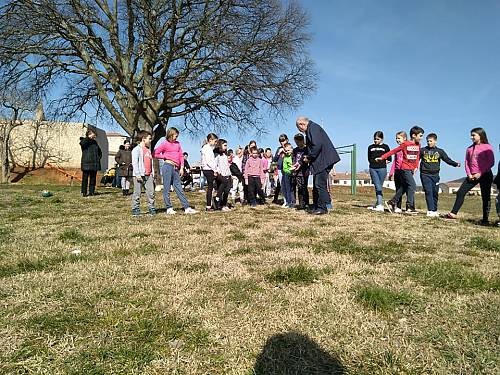 Members of a local community gathering to discuss ways to preserve traditional games, highlighting the importance of community involvement.
Members of a local community gathering to discuss ways to preserve traditional games, highlighting the importance of community involvement.
9. How Can Tourists Respectfully Participate In Traditional Games During Festivals?
Tourists can respectfully participate in traditional games during festivals by being mindful of local customs, showing enthusiasm, and engaging with the community. Respectful participation enhances the experience for both tourists and locals, fostering cultural exchange and understanding.
Tips for Respectful Participation:
| Tip | Description | Benefits |
|---|---|---|
| Learn About the Game | Before participating, take some time to learn about the rules, history, and cultural significance of the game. | Shows respect for the tradition and enhances your understanding of the game. It also allows you to participate more effectively and enjoy the experience more fully. |
| Ask for Permission | Always ask for permission before joining a game or activity. | Demonstrates respect for the local community and ensures that your participation is welcomed. It also allows you to learn from experienced players and avoid disrupting the game. |
| Follow Local Customs | Observe and follow local customs and etiquette. This may include dressing appropriately, removing shoes before entering certain areas, and using respectful language. | Shows respect for the local culture and helps you integrate more seamlessly into the community. It also avoids causing offense or misunderstanding. |
| Show Enthusiasm | Participate with enthusiasm and a positive attitude. | Creates a more enjoyable experience for everyone involved. It also demonstrates your appreciation for the tradition and encourages others to participate. |
| Engage with the Community | Interact with local players and spectators, ask questions, and show genuine interest in their culture. | Fosters cultural exchange and understanding. It also allows you to learn more about the tradition from the people who know it best. |
| Respect the Environment | Be mindful of the environment and avoid littering or damaging cultural sites. | Helps preserve the beauty and integrity of the cultural site. It also demonstrates your respect for the local environment and promotes sustainable tourism practices. |
According to the Tourism Concern organization, responsible tourism involves respecting local cultures and traditions, and actively contributing to their preservation.
SIXT.VN promotes responsible tourism by providing our guests with information and guidance on how to respectfully participate in cultural activities. Our tours are designed to minimize negative impacts on local communities and maximize the benefits of tourism for cultural preservation.
We can help you arrange tours that focus on cultural immersion, ensuring you respectfully engage with local traditions. With SIXT.VN, you can book airport transfers, reserve accommodations, and schedule tours with the peace of mind that comes from knowing you’re traveling responsibly. Contact us today to plan your cultural adventure. Address: 260 Cau Giay, Hanoi, Vietnam. Hotline/Whatsapp: +84 986 244 358. Website: SIXT.VN.
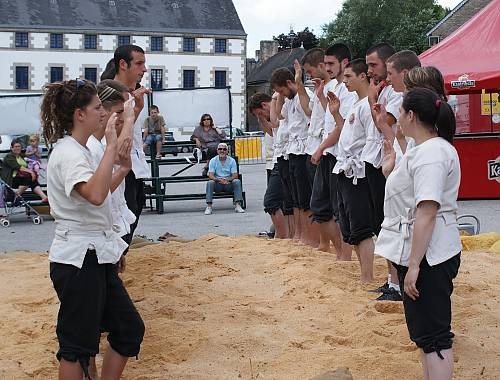 A tourist respectfully participating in a traditional game during a festival, demonstrating cultural exchange and understanding.
A tourist respectfully participating in a traditional game during a festival, demonstrating cultural exchange and understanding.
10. What Are The Benefits Of Promoting Traditional Games For Tourism In Vietnam?
Promoting traditional games for tourism in Vietnam offers numerous benefits, including cultural preservation, economic development, and enhanced tourist experiences. These games provide unique and authentic cultural attractions that can draw visitors from around the world.
Key Benefits of Promoting Traditional Games for Tourism:
| Benefit | Description | Impact |
|---|---|---|
| Cultural Preservation | Promotes the preservation and transmission of Vietnamese cultural heritage by showcasing traditional games to a wider audience. | Ensures that these games continue to be played and appreciated by future generations. It also raises awareness of the cultural significance of these games and encourages their preservation. |
| Economic Development | Creates economic opportunities for local communities through tourism-related activities. | Generates income for local businesses, such as restaurants, hotels, and souvenir shops. It also creates jobs and supports the development of tourism infrastructure. |
| Enhanced Tourist Experience | Provides tourists with unique and authentic cultural experiences that go beyond typical tourist attractions. | Offers tourists a deeper understanding of Vietnamese culture and traditions. It also provides them with opportunities to interact with local communities and participate in cultural activities. |
| Increased Tourism Revenue | Attracts more tourists to Vietnam, leading to increased tourism revenue. | Boosts the national economy and supports the development of the tourism industry. It also helps to promote Vietnam as a cultural destination. |
| Community Empowerment | Empowers local communities by giving them a stake in the tourism industry and promoting their cultural heritage. | Fosters a sense of pride and ownership in local culture. It also encourages communities to take an active role in preserving and promoting their traditions. |
According to the Vietnam National Administration of Tourism, cultural tourism is a growing trend, and promoting traditional games can help Vietnam attract more culturally-minded travelers.
SIXT.VN is dedicated to promoting traditional games and cultural tourism in Vietnam. We offer tours and travel packages that highlight these games and provide tourists with authentic cultural experiences. Our services ensure a seamless and enriching journey, contributing to cultural preservation and economic development in local communities.
FAQ About Traditional Games During Festivals In Vietnam
Q1: What is the most popular traditional game during Tet in Vietnam?
Bầu Cua Tôm Cá (Gourd Crab Shrimp Fish) is a very popular betting game during Tet, symbolizing luck and prosperity.
Q2: How do traditional games help in preserving Vietnamese culture?
Traditional games transmit customs, values, and historical knowledge, keeping cultural heritage alive.
Q3: Can tourists participate in traditional games during festivals?
Yes, tourists can participate respectfully by learning the rules, asking for permission, and engaging with the community.
Q4: What is “Đua Thuyền” and when is it usually played?
Đua Thuyền is boat racing, symbolizing teamwork and the importance of water, often played during water festivals.
Q5: What is the significance of “Rước Đèn Ông Sao” during the Mid-Autumn Festival?
Rước Đèn Ông Sao involves children parading with star-shaped lanterns, symbolizing guidance and hope.
Q6: Are there any traditional games specific to rural areas in Vietnam?
Yes, games like “Đánh Phết Đánh Bòng” and “Chọi Trâu” are played in certain rural provinces, reflecting unique local customs.
Q7: How are schools incorporating traditional games into their curriculum?
Schools integrate these games into physical education, cultural events, and extracurricular activities to promote cultural awareness.
Q8: What kind of support do local communities need to preserve traditional games?
Local communities need financial assistance, educational initiatives, infrastructure development, and cultural documentation.
Q9: What should tourists do to respectfully participate in traditional games?
Tourists should learn about the game, ask for permission, follow local customs, and engage with the community respectfully.
Q10: What are the benefits of promoting traditional games for tourism in Vietnam?
The benefits include cultural preservation, economic development, enhanced tourist experiences, and community empowerment.
SIXT.VN is your premier partner for exploring the cultural richness of Vietnam, offering seamless and reliable travel services. From airport transfers to customized cultural tours, we ensure that your journey is enriching and stress-free. Let us help you discover the beauty of Vietnamese traditions and create unforgettable memories.



